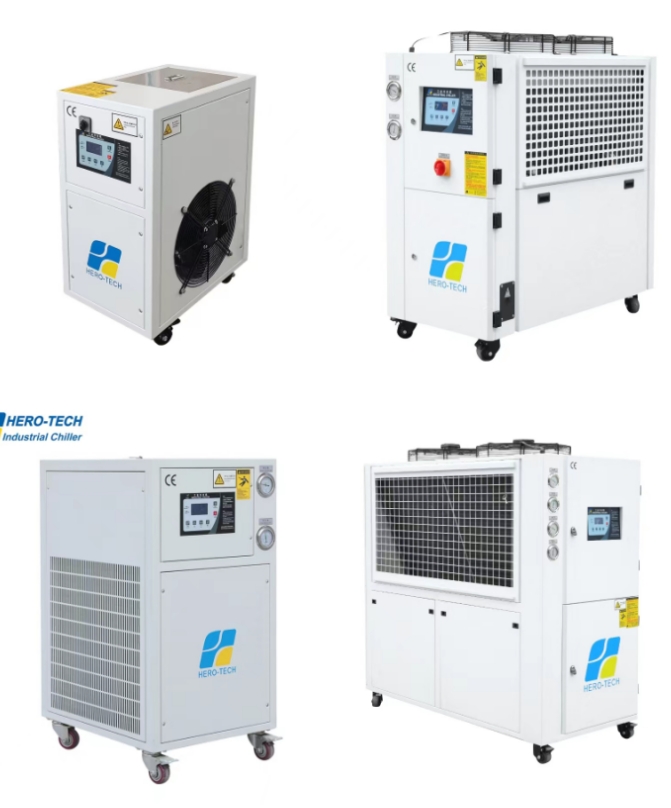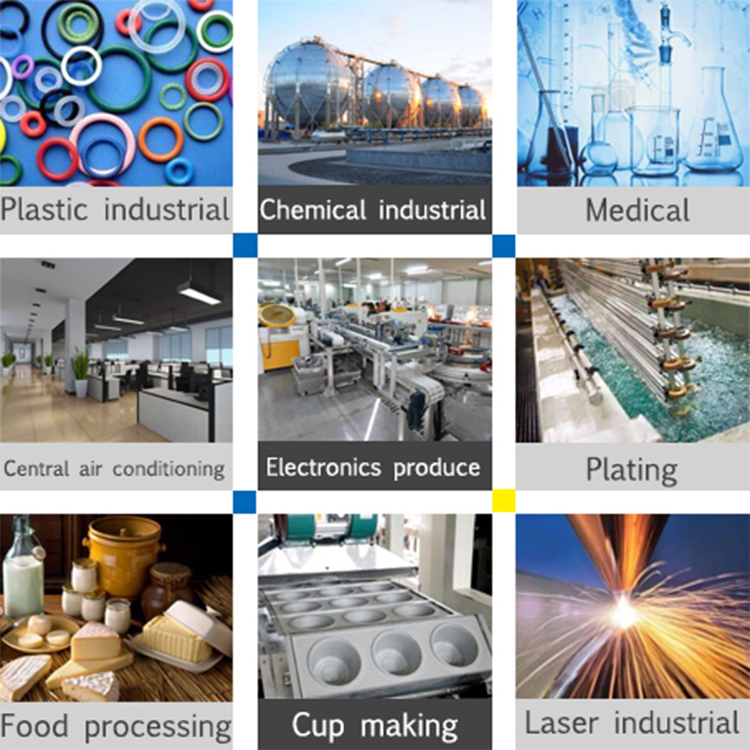Independent cooling system: air cooled water chiller adopts an independent air cooling system and does not require additional cooling water sources or cooling towers. This makes installation and operation relatively simple, saving installation and maintenance costs and space.
Wide range of applications: Air-cooled water chillers are suitable for various industrial applications, including plastic processing, refrigeration and air conditioning systems, machining, printing and paper making. They provide reliable cooling for different equipment and processes.
High efficiency and energy saving: The air-cooled water chiller adopts air cooled method and uses forced fans to circulate the air and take away the heat. Compared to traditional water-cooled chillers, they do not require additional water pumps and cooling towers, thus saving energy and operating costs.
Flexibility and mobility: Since they do not need to be connected to an external cooling water source, air-cooled chillers are more flexible and can be moved to different locations more easily. This is useful for applications that require movement in work location.
Small footprint: Air-cooled chillers have a relatively small footprint as they do not require a cooling tower and water cooling system. This is advantageous when space is limited.
However, air-cooled water chillers may be slightly less efficient than water-cooled chillers in heat dissipation efficiency, especially in high-temperature environments. In addition, since air cooled chillers require the use of fans, noise and vibration may occur. Therefore, when selectingwater chillers, it is necessary to comprehensively consider the advantages and disadvantages based on specific needs and process requirements, and weigh various factors.
Post time: Jan-03-2024

















